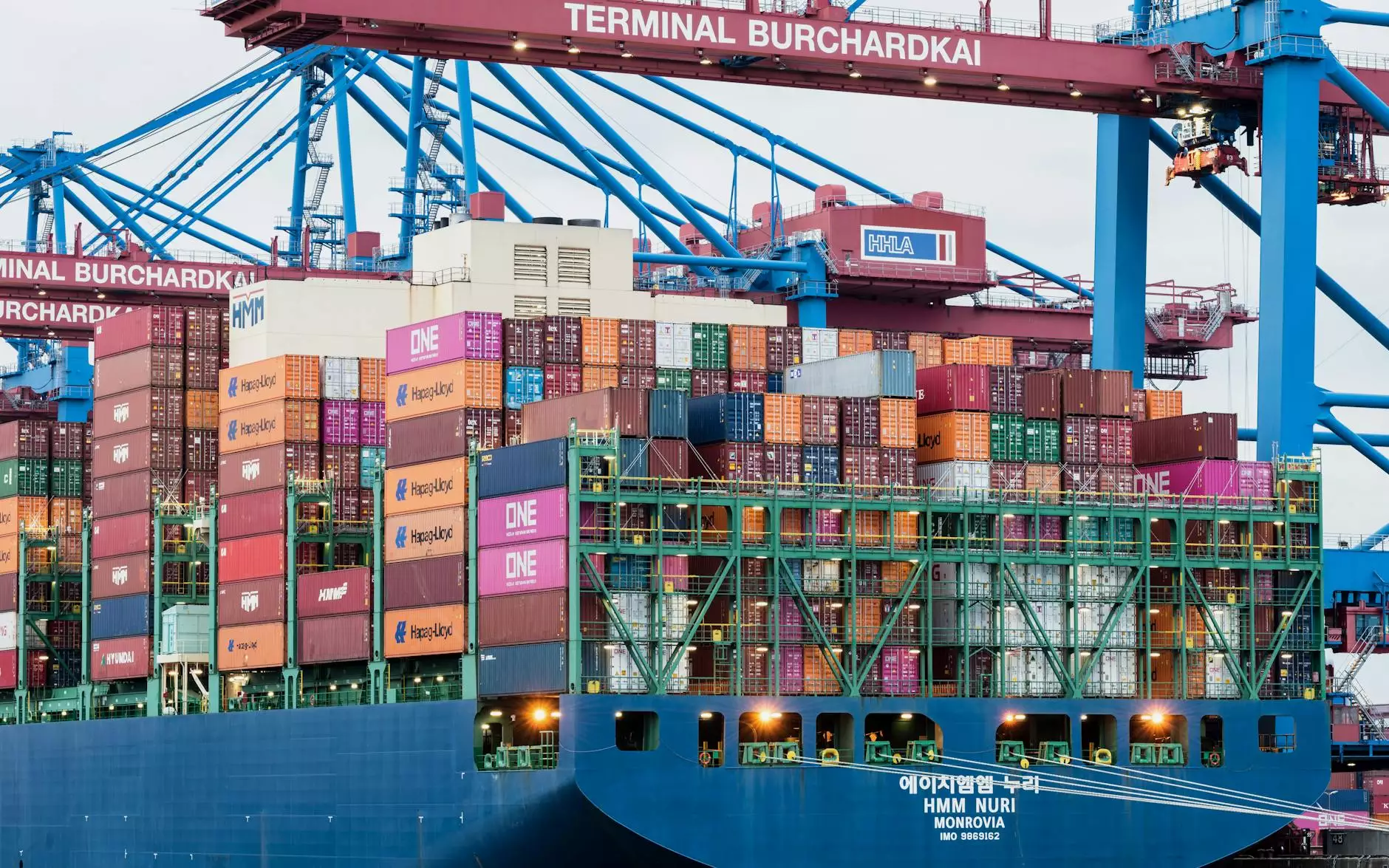Understanding Freight Charges per Kg: A Comprehensive Guide

Shipping costs play a crucial role in the operations of businesses involved in logistics and transportation. With the rise of e-commerce and global trade, understanding these costs is more important than ever. One of the most significant components of shipping costs is the freight charges per kg, which can greatly impact a company's bottom line.
What Are Freight Charges?
Freight charges are the fees incurred for transporting goods from one location to another. These charges can vary significantly based on various criteria including weight, distance, type of goods, and the choice of transportation method.
Key Factors Influencing Freight Charges per Kg
- Weight of Goods: Heavier shipments generally incur higher freight charges. Most carriers have a specific pricing formula that takes weight into account.
- Dimensions and Volume: Besides weight, the size of the package plays a critical role. Carriers often charge based on the dimensional weight (DIM weight) if it exceeds the actual weight.
- Distance: The geographical distance between the origin and destination significantly affects costs. Longer distances typically lead to higher transport fees.
- Shipping Method: The mode of transportation (air, sea, or land) can also alter charges. For instance, air freight is generally more expensive than ocean freight.
- Type of Goods: Certain goods may require special handling or temperature control, which can increase the freight charges.
- Carrier Rates: Different carriers have unique pricing structures. It's essential to compare rates among various service providers.
- Insurance: Adding insurance to your shipment can also affect freight costs.
How Freight Charges Are Calculated
The calculation of freight charges per kg usually involves a straightforward process, encompassing the following steps:
- Determine the Weight: Measure the actual weight and dimensions of the cargo.
- Dimensional Weight Calculation: Calculate the dimensional weight using the formula: (Length x Width x Height) / Dimensional Factor. The higher of the actual weight and the dimensional weight is often used for billing.
- Choose a Shipping Method: Decide on air, sea, or land transport, based on your budget and urgency.
- Request Quotes: Contact multiple carriers for quotes that specify their rate per kg.
The Importance of Understanding Freight Charges
For businesses looking to optimize their shipping costs, gaining a thorough understanding of freight charges is essential for the following reasons:
1. Budgeting and Financial Planning
Knowing the freight charges per kg helps businesses accurately forecast logistics expenses, thereby aiding in budgeting.
2. Improving Profit Margins
By comprehensively understanding shipping costs, companies can make informed decisions that enhance their profit margins, such as choosing the right carriers or optimizing package sizes.
3. Competitive Advantage
Familiarity with freight charges allows businesses to remain competitive by offering accurate shipping costs to their clients.
4. Strengthening Relationships with Carriers
Establishing a clear understanding of your needs and the associated costs can strengthen your relationship with carriers, leading to better service and potentially lower rates.
Strategies to Optimize Freight Charges
To effectively manage and reduce freight charges per kg, consider the following strategies:
1. Consolidate Shipments
Consolidating shipping can significantly reduce costs. Instead of sending multiple smaller shipments, combining them into one larger shipment can lower the overall charge per kg.
2. Negotiate with Carriers
Regularly reviewing and negotiating rates with carriers can lead to more favorable terms. Developing a good relationship can also open doors to discounts.
3. Optimize Packaging
Use the smallest possible packaging that is still effective to minimize dimensional weight, which can lower freight charges.
4. Leverage Technology
Utilizing transportation management software to track, analyze, and manage shipping data can help identify cost-saving opportunities.
The Future of Freight Charges in the E-commerce Era
The rise of e-commerce has dramatically changed the landscape of freight charges. With more consumers expecting fast shipping, logistics providers are constantly adapting to meet these demands.
Trends Shaping Future Freight Charges
- Increased Demand for Speed: As consumers become accustomed to quick delivery times, providers are forced to innovate, which can impact freight pricing.
- Sustainability Initiatives: Companies are integrating more sustainable practices, often influencing freight charges due to the investments in eco-friendly options.
- Advanced Automation: The rise of automation in warehousing and transportation can lead to operational efficiencies that may decrease shipping costs.
- Dynamic Pricing Models: As technology advances, we may see more flexible pricing models that fluctuate based on demand and capacity.
Conclusion
Understanding freight charges per kg is crucial for businesses aiming to manage costs and optimize logistics operations. By considering the various factors that influence these charges, companies can make informed decisions that result in better budgeting, increased profitability, and a competitive edge. As the logistics landscape continues to evolve, staying informed and adaptable will be key to navigating the complexities of freight charges in the modern economy.
For More Information
If you're looking for more insights and tailored solutions for managing your shipping needs, visit cargobooking.aero. Our experts can help you navigate the intricacies of freight charges and provide solutions that meet your business needs.









